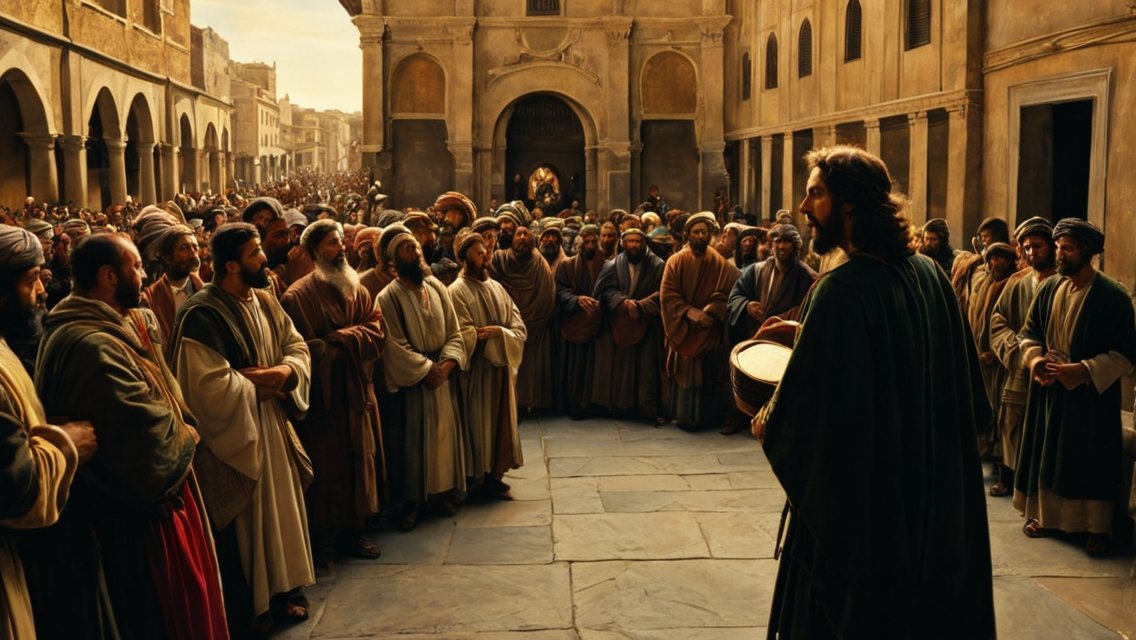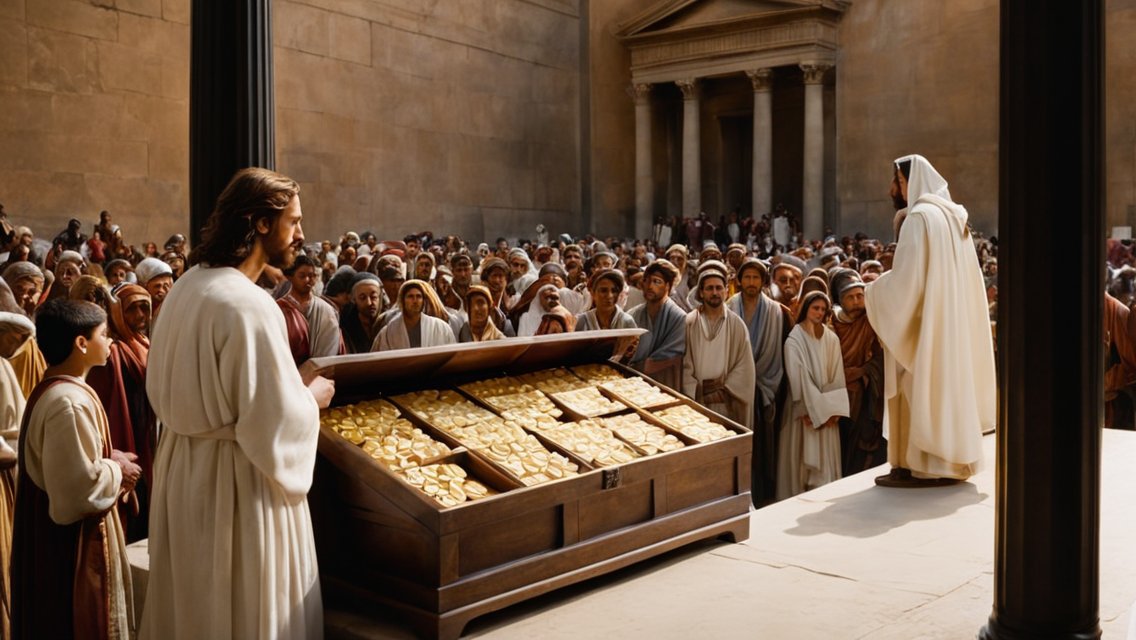Twenty-second Sunday Homily of the Ordinary Time – Year B
Readings: Deut 4:l-2. 6-8, Jas l:l7-l8, 2l-22, 27, Mk 7:l-8, l4-l5, 2l-23
1st Reading – Deuteronomy 4:1-2, 6-8
Moses said to the people:
1 “Now, Israel, hear the statutes and decrees which I am teaching you to observe, that you may live, and may enter in and take possession of the land which the LORD, the God of your fathers, is giving you.
2 In your observance of the commandments of the LORD, your God, which I enjoin upon you, you shall not add to what I command you nor subtract from it.
6 Observe them carefully, for thus will you give evidence of your wisdom and intelligence to the nations, who will hear of all these statutes and say, ‘This great nation is truly a wise and intelligent people.’
7 For what great nation is there that has gods so close to it as the LORD, our God, is to us whenever we call upon him?
8 Or what great nation has statutes and decrees that are as just as this whole law which I am setting before you today?”
Responsorial Psalm – Psalms 15:2-3, 3-4, 4-5
R. (1a) The one who does justice will live in the presence of the Lord.
2 Whoever walks blamelessly and does justice;
who thinks the truth in his heart
3A and slanders not with his tongue.
R. The one who does justice will live in the presence of the Lord.
3B Who harms not his fellow man,
nor takes up a reproach against his neighbor;
4A by whom the reprobate is despised,
while he honors those who fear the LORD.
R. The one who does justice will live in the presence of the Lord.
5 Who lends not his money at usury
and accepts no bribe against the innocent.
Whoever does these things
shall never be disturbed.
R. The one who does justice will live in the presence of the Lord.
2nd Reading – James 1:17-18, 21B-22, 27
Dearest brothers and sisters:
17 All good giving and every perfect gift is from above, coming down from the Father of lights, with whom there is no alteration or shadow caused by change.
18 He willed to give us birth by the word of truth that we may be a kind of first fruits of his creatures.
21B Humbly welcome the word that has been planted in you and is able to save your souls.
22 Be doers of the word and not hearers only, deluding yourselves.
27 Religion that is pure and undefiled before God and the Father is this: to care for orphans and widows in their affliction and to keep oneself unstained by the world.
Alleluia – James 1:18
R. Alleluia, alleluia.
18 The Father willed to give us birth by the word of truth
that we may be a kind of firstfruits of his creatures.
R. Alleluia, alleluia.
Gospel – Mark 7:1-8, 14-15, 21-23
1 When the Pharisees with some scribes who had come from Jerusalem
gathered around Jesus,
2 they observed that some of his disciples ate their meals with unclean, that is, unwashed, hands.
3 (For the Pharisees and, in fact, all Jews, do not eat without carefully washing their hands, keeping the tradition of the elders.
4 And on coming from the marketplace they do not eat without purifying themselves. And there are many other things that they have traditionally observed, the purification of cups and jugs and kettles and beds.
5 So the Pharisees and scribes questioned him, “Why do your disciples not follow the tradition of the elders but instead eat a meal with unclean hands?”
6 He responded, “Well did Isaiah prophesy about you hypocrites, as it is written:
This people honors me with their lips,
but their hearts are far from me;
7 in vain do they worship me,
teaching as doctrines human precepts.
8 You disregard God’s commandment but cling to human tradition.”
14 He summoned the crowd again and said to them, “Hear me, all of you, and understand.
15 Nothing that enters one from outside can defile that person; but the things that come out from within are what defile.
21 “From within people, from their hearts, come evil thoughts, unchastity, theft, murder,
22 adultery, greed, malice, deceit, licentiousness, envy, blasphemy, arrogance, folly.
23 All these evils come from within and they defile.”
Moral Story For 22nd Homily Year B
The True Treasure – Moral Story.
Once upon a time, in a small village, there lived a wealthy man named Raghav. He was known far and wide for his vast riches, which he flaunted with pride.
He wore the finest clothes, lived in a grand mansion, and hosted lavish feasts. Yet, despite his wealth, Raghav was not a happy man. He was constantly anxious, always fearing that someone would steal his treasures. Continue to Read
Homily
The Wrongs of Rites
“You put aside the commandment of God
to cling to human traditions” (Mk)
Imagine that Jesus comes to your parish-church to preach the Sunday homily. He says, “You honour me only with lip-service, while your heart is far from me. The worship you offer is worthless; the doctrines you teach are only human regulations. You put aside the commandments of God and cling to human traditions.” Would these words shock you? Well, these are exactly the words Jesus uses for the Pharisees in today’s gospel. Do they also apply to us?
The readings of today highlight the difference between what Jesus calls “G d’s laws” and “human traditions”, between “pure, unspoilt religion” and defiled religiosity, between “lip-service” and heart-devotedness. It would thus be apt to ask myself: Why do I attend Mass, recite rosaries, make novenas and embark upon pilgrimages? Do all these bring me closer to God and make me a better human being?
The supposedly “pure people’ in Jesus’ time and the Pharisees, in particular, considered ritual purity of prime importance. Not only were there hundreds of rules and regulations regarding purity of temple-worship, but these rules were enforced in households too. Thus, there was insistence on hand washing before meals, and hands had to washed in a stipulated way, as well. Consequently, rather than relishing a meal, one would be more engrossed in whether, and how, one had washed one’s hands!
After the initial tirade against the traditionalism and ritualism of the Pharisees – quoted from prophet ‘Isaiah (29:l3) – Jesus addresses the people saying, “Nothing that goes into a man from outside can make him unclean; it is the things that come out of a man that make him unclean.” in other words, what one eats does not defile anyone – rather, purity is assessed by inner virtue that results in righteous behaviour. What is fundamental is righteousness, not rites, the heart, not the mouth.
The first reading comes from the prologue of God’s Law enunciated in the book of Deuteronomy. By obeying the Law, people showed their love for God. Nonetheless, the people are warned not to alter the Law to suit human convenience. As if to reiterate the theme, the responsorial psalm (ES) extols the qualities of one who is fit to enter God’s temple and dwell on the holy mountain. This is a so-called ‘entry psalm’ sung by pilgrims as they approached the Temple. To worthily enter God’s presence there is need for speaking the truth from one’s heart, acting with justice, keeping one’s pledge and so on.
The second reading from the letter of St James – which will be read in the next 5 weeks – contains exhortations and wisdom teachings. We are cautioned to “do what the word tells you, and not just listen to it and deceive yourselves.” The reading ends with a practical suggestion, namely, “Pure, unspoilt religion is this: coming to the help of orphans and widows when they need it.” While not undermining the value of liturgy, James wants believers to check whether their rites and religion lead to fruitful action.
A disciple once boasted about the effectiveness of his pujas and pilgrimages. His Guruji advised him to take a bitter gourd along with him on his pilgrimages to place at every altar, to dip into every holy river and to be blessed at every shrine. When the disciple returned, the Guruji reverently conducted a liturgy with the bitter gourd, cut it into pieces and distributed it as sacramental food. Tasting it, he declared, “Isn’t it surprising that all the prayers, pujas and pilgrimages, have not reduced the bitterness of this gourd?”
Many people – especially the clergy – spend much time discussing rectitude of rituals and reinforcement of rites. For these, rites are more a matter of prestige, profit and power rather than of wonder and worship leading to works of love and service. Isn’t it time to stop fighting about rites and begin fighting for the rights of those orphans and widows mentioned in Scripture?





